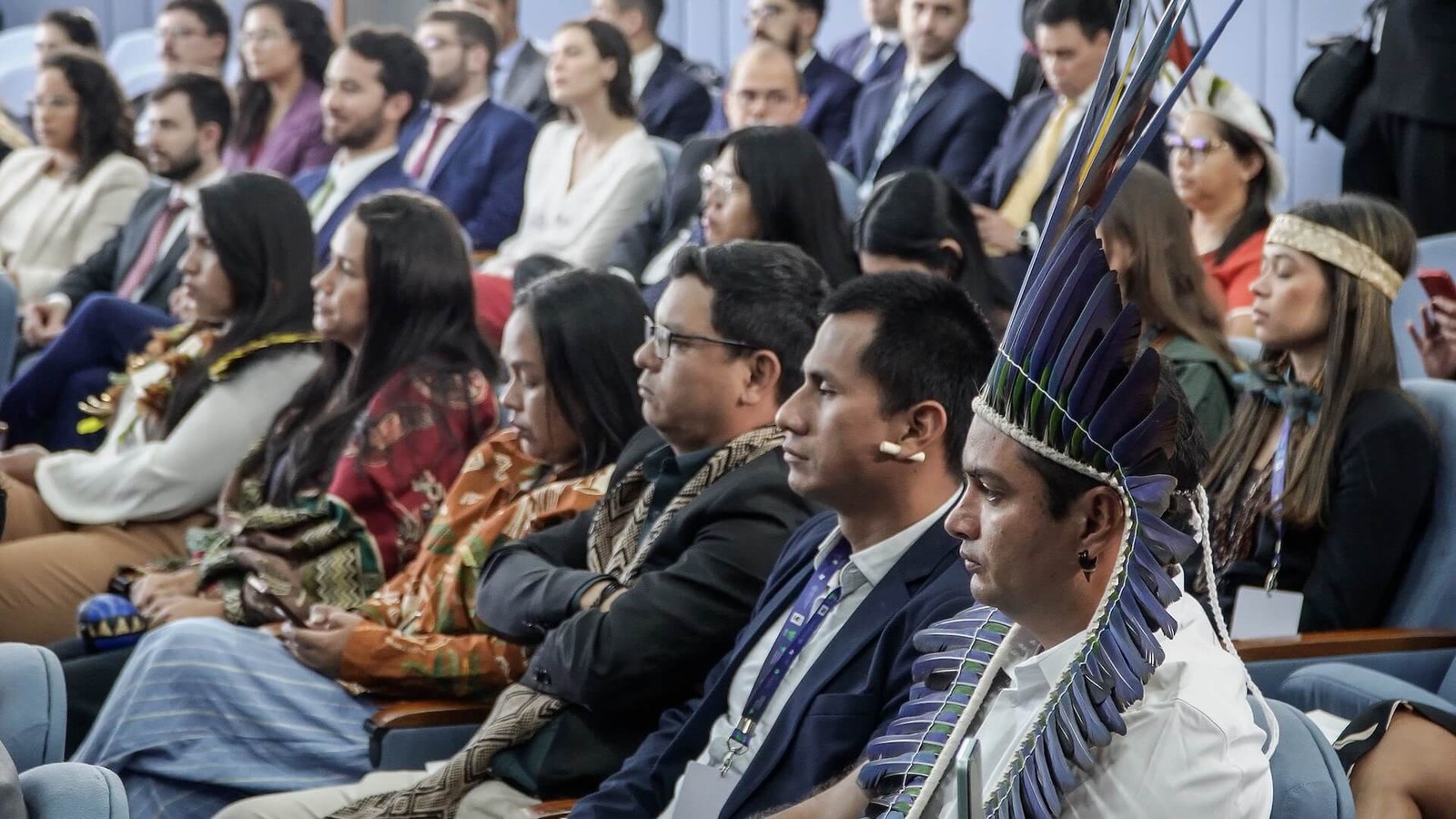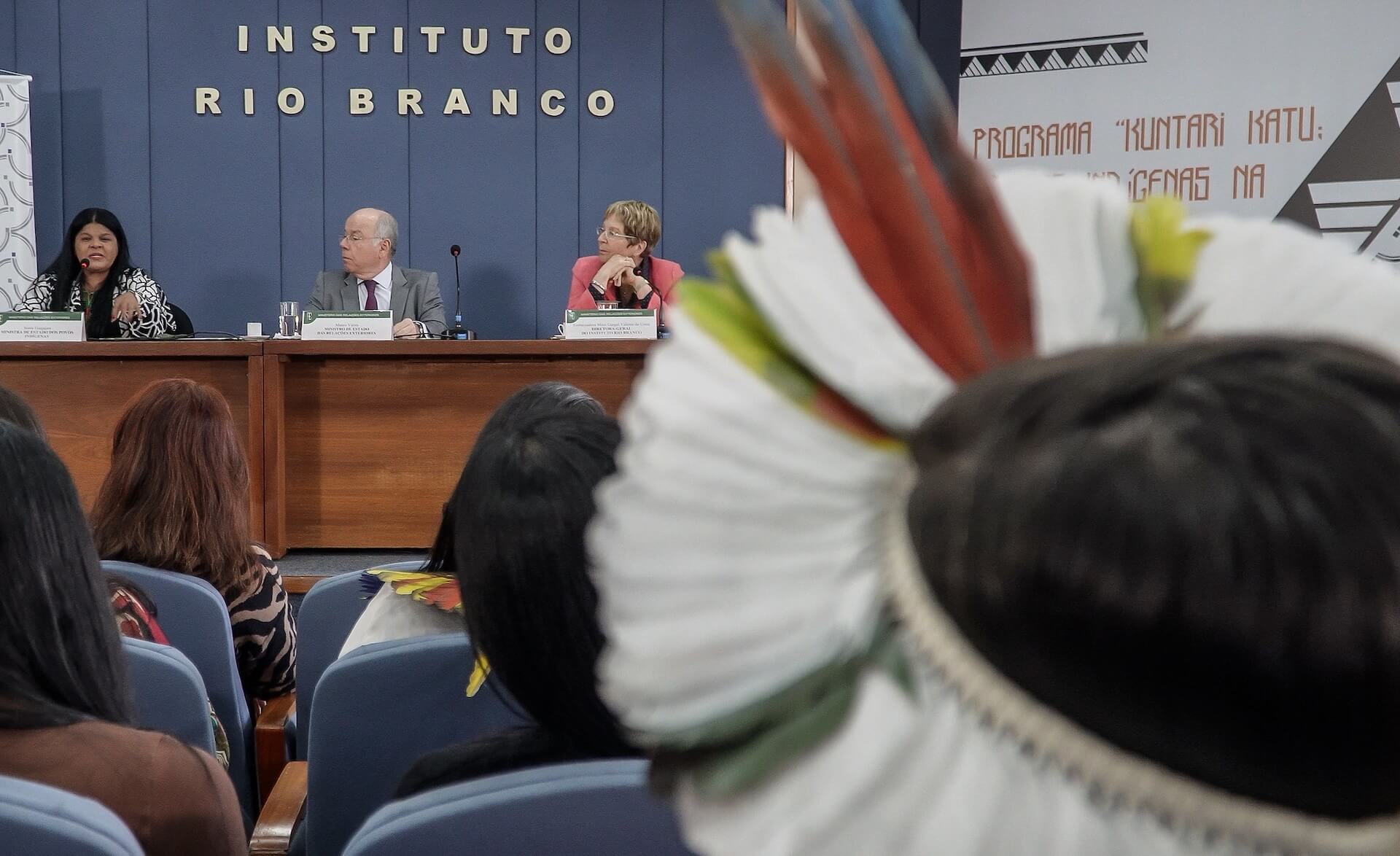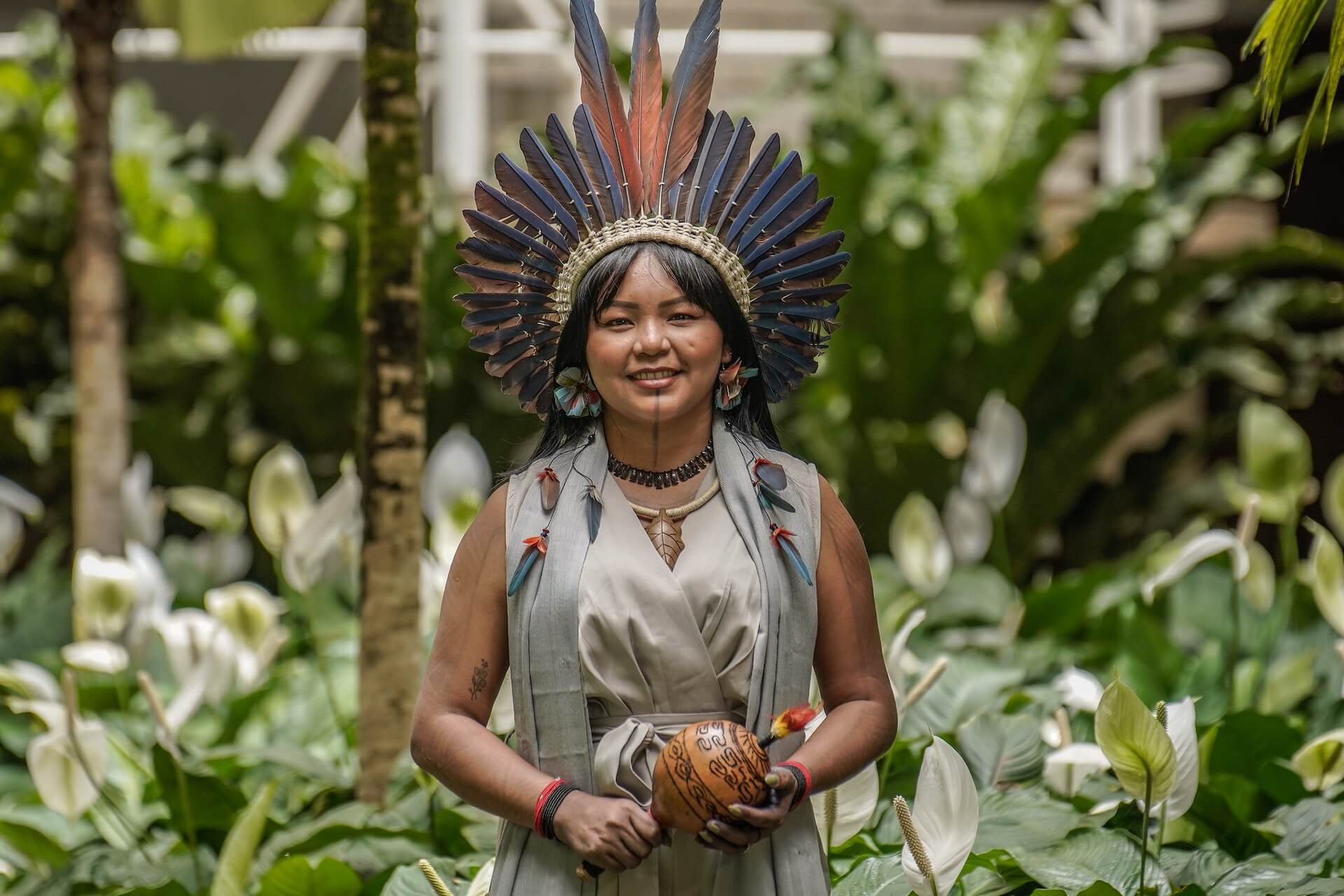Kuntari Katu: a training course that promotes the indigenous voice at COP30
The Brazilian program Kuntari Katu prepares Indigenous diplomats in climate negotiations. The course prepares 30 leaders to work at COP30 in Belém, integrating traditional knowledge and diplomacy. A historic initiative by the Ministry of Indigenous Peoples (Ministério dos Povos Indígenas/MPI), Ministry of Foreign Affairs (Ministério das Relações Exteriores/MRE), and the Rio Branco Institute aims to include Indigenous people in global decisions on climate and the Amazônia.

By Leandro Molina / leandro.molina@presidencia.gov.br
At a key moment for the future of the Amazônia ̶ and the global climate ̶ Brasil is preparing to host COP30 in Belém do Pará with an unprecedented initiative: the Kuntari Katu Programme, a course that trains indigenous leaders to act in complex international climate negotiations. Developed in partnership among the Ministry of Indigenous Peoples (Ministério dos Povos Indígenas/MPI), MRE and the Rio Branco Institute, the program represents a historic milestone in the inclusion of traditional knowledge in global environmental policies.
The partnership prepares 30 indigenous students to negotiate on behalf of their communities and the planet. As COP30 approaches, these new indigenous diplomats are preparing to write an unprecedented chapter in the history of global climate negotiations, proving that ancestral wisdom has a key role to play in building solutions to the climate crisis.
The Minister of Indigenous Peoples, Sonia Guajajara, did not hide her pride when she spoke about the project. “This is the first time that we have indigenous Brazilians being technically prepared to attend a COP – not just as observers, but as negotiators,” she explains. The name of the program, Kuntari Katu, comes from the Nheengatu and Tupi languages so it means “the one who speaks well” – a direct reference to the role of indigenous diplomacy. “It's not just about speaking a lot, it's about speaking effectively, with technical knowledge and authority,” says the minister.
The course, developed since August 2024, has been carefully structured to provide participants with the essential tools to act in international forums. The on-site course modules cover everything from the complexities of climate finance to carbon market mechanisms, as well as topics such as gender, mitigation and the integration of the biodiversity and climate agendas. Classes are taught by experienced diplomats and experts from the Ministry of the Environment (Ministério do Meio Ambiente e Mudança Climática/MMA), ensuring that students understand both the theory – and the practice – of international negotiations.

For Minister Sonia Guajajara, holding COP30 in the Brazilian Amazônia represents a unique opportunity. "This will be the first time that a Climate Conference has been held in the heart of the forest. We cannot let it be just another international event, but rather a milestone in the effective inclusion of indigenous peoples in global climate decisions," she said.
The programme also includes a broad mobilization process in the communities. Since the beginning of April 2025, the Ministry of Indigenous Peoples has been holding workshops in Belém and other regions to explain what the COP is and how communities can participate. “We want indigenous peoples from all over Brasil to feel part of this process, even those who won't be able to physically be in Belém,” says Guajajara.
The selection of participants was a meticulous process that sought to reflect on the diversity of Brasil's indigenous peoples. Among 200 applicants, 35 representatives were chosen (30 members and 5 alternates) from all the country's biomes. People from the Amazônia, the Cerrado, the Caatinga, the Atlantic Forest and the Pantanal all took part. In the classrooms of the Rio Branco Institute, the Kuntari Katu students pore over complex documents, learn to interpret technical terms such as “NDCs” (Nationally Determined Contributions) and “loss and damage”, and discuss strategies for taking their perspectives to the negotiating tables.
For Maisangela Oliveira, a student on the course - indigenous to the Sateré Mawé people - this training represents a historic opportunity. "They always talk about the importance of the Amazônia, but often our voices are silenced in this debate. Now we're learning the technical language to show the world how indigenous peoples have looked after their territories for centuries," she says enthusiastically. The student, who is one of the indigenous youth representatives in the program, highlights the importance of the English classes. “We're preparing ourselves to not only understand official documents, but to directly engage in discussions,” she says.

The program goes beyond the classroom. Participants have also received ongoing mentoring since last year to further their knowledge of global environmental governance and maintain links with their communities of origin. “We're not here just for ourselves, but to represent our relatives who are in the villages directly suffering the impacts of climate change,” argues indigenous Maisangela Oliveira.
The young leader also points out that the biggest challenge is to balance traditional knowledge with the technical language of international negotiations: "Our elders have always known how to take care of the forest. Now we are learning how to translate this knowledge to the world. This experience is already changing our view of indigenous activism. In the past, we protested outside spaces of power. Now we're preparing to occupy these spaces from the inside, with knowledge and strategy," she says.
Minister Mauro Vieira stress indigenous protagonism
With COP30 approaching, the pace of preparation is intensifying, and in April and May the course will move on to the climate modules. Minister of Foreign Affairs Mauro Vieira emphasized the importance of the Climate Conference as a milestone for the global climate agenda and the role of indigenous peoples at an event at the Rio Branco Institute in Brasília. “The Amazônia is a key axis of planetary stability,” he said, warning of the risk of “savannization” if deforestation exceeds 80% - global warming exceeds 1.5°C.
Vieira highlighted the program that promotes indigenous training in foreign policy, and celebrated the signing of an agreement among MRE, the Ministry of Indigenous Peoples (Ministério dos Povos Indígenas/MPI) and CNPq to grant scholarships to indigenous candidates for diplomatic careers. "We want their voices at the center of the international debate. Indigenous peoples are the guardians of this ancestral knowledge that can help us avoid this climate catastrophe," said the chancellor.
Mariana Moscardo, Minister-Counsellor and Deputy Director General of the Rio Branco Institute, says that the course emerged from the convergence reached between the Rio Branco Institute itself and the MPI to train indigenous people at the COP, integrating environmental and diplomatic knowledge. According to her, its presidency of COP30 was a catalyst, highlighting the importance of the substantive participation of indigenous peoples. The Minister-Counselor says that the initiative reflects the 80 years of the Institute, as it has been training diplomats since 1945 - and is now moving towards inclusion. "It's a look to the future. Preparing indigenous people not only to negotiate, understanding diplomatic rituals and language, but also to inspire new generations in their careers, combining tradition and diversity in the construction of Brazilian diplomacy," she says.
English Version: Trad. Bárbara Menezes
Proofreading by Enrique Villamil
